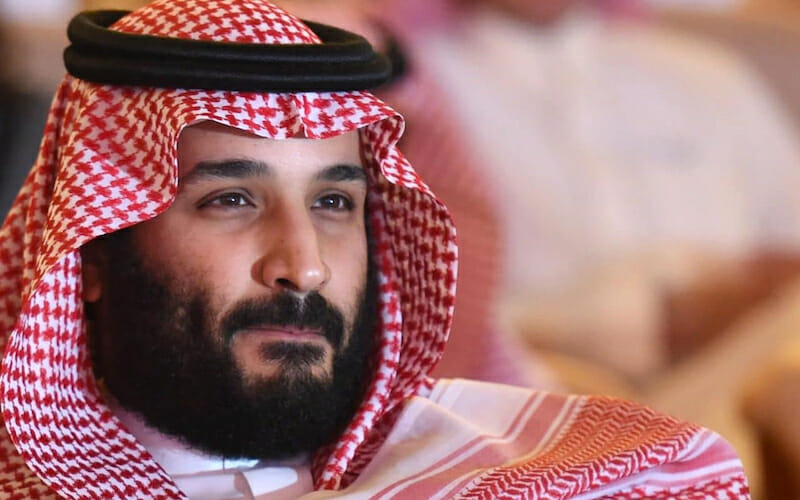
Can a Moderate Saudi Arabia Reform the Arab World?
With Saudi Arabia’s new crown Prince set to take the throne as early as this week, the Arab world could see some of the largest changes since the Arab Spring.
Recently it was announced that Saudi King Salman intends to name his son, Crown Prince Mohammed bin Salman (MbS), as his successor. The original announcement of MbS becoming next in line for the throne happened just this June, and sent shockwaves as it undermined a monarchy system that had existed for several generations.
Earlier this month, MbS, using his newly acquired power as head of the recently formed Anticorruption Commission, arrested 11 princes and dozens of other wealthy businessmen and high officials under the promise of fighting corruption.
Two weeks before the arrest, MbS organized a global economic summit meeting in Riyadh to showcase his plans to diversify the Saudi economy beyond oil. At the summit, MbS spoke of his plans to return Saudi Arabia to its original moderate Islam.
The New York Times, in June, reported that even a couple of steps away from the Saudi throne, MbS had already pushed the state oil company toward a public offering and loosened some social restrictions, which included the move to allow women to drive. MbS states that his move towards imposing a moderate Islam aims to rid the country of corruption from the wealthy elite and attract more strategic investments.
Under MbS, as Sigal Samuel suggests in her article in The Atlantic, Saudi Arabia is going to great lengths to present itself as “moderate”—or at least, as trying to embody “a moderate Islam open to the world and all religions,” as the crown prince recently put it. Perhaps the most indicative move of this shift is the new ban on the Saudi religious police from arresting Saudi citizens.
Diving deeper into Saudi Arabia’s modern background, it is well known that Wahhabism is the most important idea that reverberates in the Saudi socio-political spectrum. In fact it makes for an important part of ideological convictions of a large proportion of the populace.
However, that was not always so. Saudi Arabia was envisioned by its founder Ibn Saud as a cornerstone of modernity; however, “contemporary Saudi Arabia is vastly different from what it was at the beginning of the twentieth century.”
The country originally was primed towards Islamic modernism which argues for advancement toward social, political and economic progress. However, the contemporary state of the Kingdom has been engineered as a result of Muhammad ibn Abd al-Wahhab’s movement which reinforced a political structure based on the idea of going back to early Islam. This political structure counters modernity as blasphemous to Islam and essentially rejects it altogether.
Taking into account Saudi Arabia’s disposition towards Wahhabism, some find it difficult to believe Saudi Arabia will succeed in returning to a more moderate country. However, the possibilities of fusing existing thoughts with modern liberal ideas is not beyond reason. For example, many Saudis were inspired by Arab nationalism during its peak in the 1950s and 1960s and it led to demands for abolishment of the monarchy or the introduction of a written constitution and so on.
The Atlantic reports that early signs suggest that Saudi Arabia’s rebranding efforts are, indeed, working. “In May of this year, President Trump praised the Saudis as they jointly inaugurated a counterterrorism center in Riyadh and just this week the Israeli military chief expressed unprecedented willingness to share intel with the Saudis, saying that Israel will “exchange information with moderate Arab countries.”
The results of Saudi Arabia becoming more moderate may also play a major role on the future of the Arab League. Since its creation in 1945, the Arab League has been politically ineffective in having sustainable management that worked. A moderate Saudi Arabia could fill this role, an unofficial leadership the country has had for many decades in the region but has unsuccessfully taken reign of.
The League was initially intended to have several objectives, such as maintaining solidarity amongst the Arab world, ensuring cohesion among the states, and arbitrating conflicts. However, as noted in 2008 by the BBC, the constant dangers to cohesion and unity have made the league too weak internally to handle members’ issues or make firm decisions. As it is at the moment, other than recognizing Palestine as a state and several economic boycotts on Israel, the league hardly agrees on anything. Saudi Arabia would need to take a strong, yet democratic leadership role to improve the League’s decision making ability. Such important tasks could present a perfect opportunity to MbS to showcase what impacts a reformed Saudi Arabia could have.
With Saudi Arabia’s influence over the Arab world, we can see how it can play a massive role in influencing the region. Recent conflicts with Yemen, Lebanon and Qatar (just to name a few) may slow this reform but the Middle East is prone to such hard relationships.
MbS could very well help in the region’s complex process of transition as it goes through a steady phase of reforms. The process can be described as a situation that has been set in motion wherein Islam remains an important part of the socio-political landscape while an inexorable process of modernization has begun.
Therefore, an envisaged modernized Islamic socio-political entity that functions in peace with individual liberty and scientific advancements has become plausible or, to some extent, exists in the shape of Saudi Arabia. And therefore, one could be hopeful that could in turn be extended to the Arab world.

